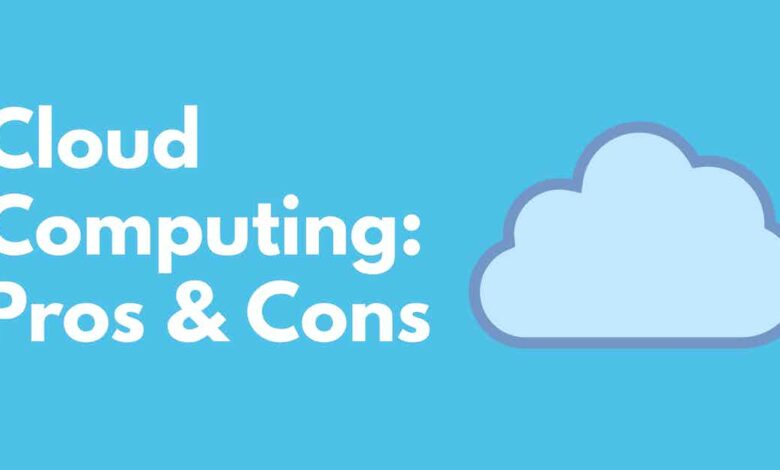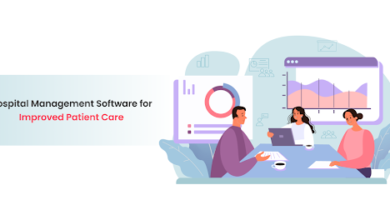The Pros and Cons of Cloud Computing

The popularity of cloud computing has recently exploded, particularly in the IT community. With this, most businesses nowadays are adopting cloud computing, whether private, hybrid, or public, which combines their best features.
With cloud computing, people use it to store videos, movies, songs, and more. It helps businesses to store data online in a safe way efficiently. The cloud also makes your data available to anyone who needs it since it has several advantages over a typical storage app.
In this blog. Let us understand cloud computing and its pros and cons that may impact businesses.
What is Cloud Computing?
Cloud computing is when users can access a shared network remotely. Thanks to servers that store data on the internet, businesses can manage their data through the cloud rather than a typical desktop. It is a place where all network devices can receive info.
The Pros and Cons of Cloud Computing
The term “cloud computing” has become significant in businesses since it makes financial sense. Here are the pros and cons of cloud computing for your business:
The Pros
Unlimited Storage Capacity
If you store your data in the cloud, regardless of whatever cloud service you choose, you may buy as much storage as you want at a considerably lower cost than if you were to buy new storage gear and software regularly. Be aware of the regulations that the provider has established about the addition and removal of files.
Enhanced collaboration and mobility
As long as users have a reliable and secure internet connection, they can access their applications, data, and files from anywhere in the world and use any device they want. The cloud has effectively dewired the whole planet.
Accessibility and pay-per-use
By saving data on the cloud, you can access it anywhere and anytime.
The quantity and kind of your consumption will determine your final charge. It’s comparable to your monthly power or phone cost. However, with other types of IT infrastructure, the whole cost is incurred at once, and it is very uncommon for those resources to be appropriately utilized, resulting in wasted expenditures.
Reliability
The cloud-based nature of your infrastructure improves the uptime and accessibility of your software and services. Thanks to the cloud’s shared and redundant infrastructure, you get greater availability of IT services.
Automatic software updates
Rarely updating a system can be an irritating process for businesses. The IT department must update the system for each employee, which consumes time and impairs productivity.
However, if you use cloud-based apps, they will be updated automatically without user intervention.
Enhanced collaboration
Businesses today are flourishing due to digital collaboration, and the advantages of remote work for businesses are convincing. Additionally, businesses are more likely than ever to employ employees in every corner of the world, making collaboration necessary.
By storing data on the cloud, numerous workers may access the same file simultaneously, streamlining their ability to work together on projects. Also, you can reduce the risk of copying out-of-date files, allowing users to access the same file simultaneously.
Scalability
As the company grows, scalability takes time and effort. By scalability, your company will only charged based on the amount of space it uses
You have two choices if the rapid expansion of your business necessitates more storage space.
You have the option of purchasing and installing more equipment as well as hiring the personnel required to maintain it. With the time required for planning and training, you should have your enhanced capacity operational within a few weeks to a month or more.
The Cons
Limited Control
Cloud infrastructure is owned and maintained by the service provider. Thus, enterprises may worry about control. You may utilize the provider’s EULA. It explains the provider’s deployment use restrictions. Even if they don’t let you change the architecture, all authorized cloud computing services let you manage your apps and data.
Once a service provider delivers a service level agreement (SLA), it is crucial to thoroughly comprehend the agreement’s content. It will assist in verifying the limitations and capabilities of the service.
Slower backups and restores
Cloud backups might take longer than on a local system because of the connection delay in transferring data to the cloud. It is usually a problem, even with more significant, comprehensive backups. The most time-consuming backups may proceed invisibly in the background without affecting network performance, while the shorter ones take less time overall.
Restoring a whole server might take more time. However, individual files and folders generally won’t be affected. With the correct service, you won’t even notice the speed differences.
Restricted or limited flexibility
Despite the enormous variety of services the cloud offers, its rules and regulations frequently restrict developers and apps. Changing providers can also be challenging due to your reliance on a particular platform or feeling “locked in” to a particular vendor.
Data loss and data leakage
Putting files and data on a server means trusting the supplier with your crown jewels. Cloud or private server data loss occurs when hackers delete or steal sensitive data. Digital vulnerabilities expose sensitive data to unauthorized access.
Data leaks typically occur over the web and email but may also occur via optical discs, USB keys, and laptops. Accidentally deleting or corrupting data causes data loss. Humans and software can’t read data damaged by viruses, physical damage, or formatting problems. Not all lost files and information can be restored, making data loss prevention crucial.
Internet Connection
Cloud computing shows the standard data storage by which every information, such as images, text, and media files, is distributed in data storage and accessible via the internet. To access this, you should have a stable connection. But still, there is only one pathway that can be used to access the data stored in the cloud.
Security
The safety of every data is crucial. Your data may be at risk because of the internet’s cloud reliance.
Data security is the cloud service provider’s responsibility in a public cloud environment. Before switching, finding a cloud service provider that employs stringent compliance measures to protect user data is essential.
For total data protection in the cloud, consider a slightly more expensive private cloud option or a hybrid cloud solution, where generic data may be retained on the public cloud, and business-critical data is stored on the private cloud.
Final Thoughts
Adopting cloud computing should be founded on a comprehensive analysis of your needs and a detailed analysis of possible suppliers. Despite its alluring advantages, cloud computing is not a problem-solving approach that can be used universally.
With its significant benefits, cloud computing is still not a problem-solving method that can be used globally. By this, you can create a well-informed option that helps your business’s goals and ensures the security and dependability of your data.





